Understanding GUID Partition Desk (GPT): A Deep Dive into Fashionable Disk Partitioning
Associated Articles: Understanding GUID Partition Desk (GPT): A Deep Dive into Fashionable Disk Partitioning
Introduction
On this auspicious event, we’re delighted to delve into the intriguing matter associated to Understanding GUID Partition Desk (GPT): A Deep Dive into Fashionable Disk Partitioning. Let’s weave attention-grabbing info and supply contemporary views to the readers.
Desk of Content material
Understanding GUID Partition Desk (GPT): A Deep Dive into Fashionable Disk Partitioning
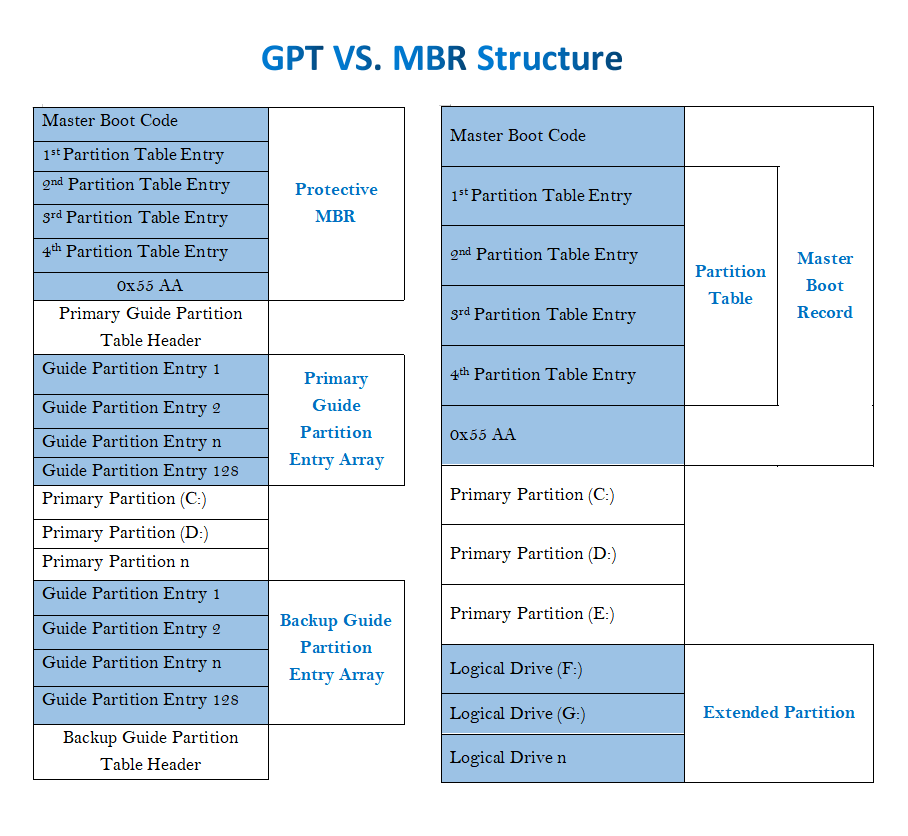
The world of knowledge storage is consistently evolving, and with it, the strategies we use to prepare and entry that knowledge. One essential side of that is disk partitioning, the method of dividing a bodily arduous drive or solid-state drive (SSD) into logical sections. For a few years, the Grasp Boot File (MBR) reigned supreme, however its limitations turned more and more obvious with the expansion of arduous drive capacities. This led to the event of the GUID Partition Desk (GPT), a extra sturdy and versatile partitioning scheme that has grow to be the usual for contemporary working methods.
This text offers a complete overview of GPT, exploring its structure, benefits over MBR, compatibility points, and sensible implications for customers and system directors.
The Limitations of MBR and the Rise of GPT
MBR, the legacy partitioning scheme, has a number of vital drawbacks that hampered its means to maintain tempo with technological developments:
-
Restricted Partition Dimension: MBR helps a most partition dimension of two terabytes (TB). This limitation was a serious bottleneck as arduous drive capacities soared past this threshold. Whereas workarounds existed, they had been cumbersome and inefficient.
-
Restricted Variety of Partitions: MBR can solely assist a most of 4 major partitions or three major partitions and one prolonged partition containing logical drives. This limitation proved restrictive for customers needing quite a few partitions for various working methods, purposes, or knowledge storage.
-
Single Level of Failure: The MBR resides within the first 512 bytes of the arduous drive. Corruption on this sector can render your entire drive inaccessible, requiring specialised restoration instruments.
-
Safety Issues: The MBR’s simplicity makes it susceptible besides sector viruses, which may overwrite the boot code and disrupt system performance.
GPT addresses all these limitations. Developed as a part of the Unified Extensible Firmware Interface (UEFI) specification, GPT affords a considerably extra resilient and scalable partitioning scheme:
-
Limitless Partition Dimension: GPT helps partitions far exceeding the 2TB restrict of MBR, accommodating even the most important fashionable arduous drives. Theoretically, the restrict is just constrained by the 64-bit addressing capabilities of the system.
-
Giant Variety of Partitions: GPT helps as much as 128 partitions per disk, offering ample flexibility for advanced storage configurations.
-
Redundancy and Knowledge Integrity: GPT shops a number of copies of the partition desk, enhancing knowledge integrity and resilience in opposition to corruption. If one copy is broken, the opposite can be utilized to reconstruct the partition desk. This redundancy considerably reduces the danger of knowledge loss because of sector harm.
-
CRC32 Checksums: GPT makes use of Cyclic Redundancy Examine (CRC32) checksums to confirm the integrity of the partition desk knowledge. This additional enhances knowledge safety and permits for early detection of corruption.
GPT Structure: A Nearer Look
Not like MBR, which depends on a single boot sector, GPT makes use of a extra refined construction:
-
Protecting MBR: For backward compatibility with older BIOS methods, GPT disks often comprise a protecting MBR. This MBR usually marks your entire disk as unusable, stopping legacy methods from trying besides from the GPT partition desk.
-
GPT Header: Situated initially of the disk, the GPT header accommodates essential info, equivalent to the placement of the partition desk, the dimensions of the partition entries, and CRC32 checksums for knowledge integrity verification.
-
Partition Desk: This part accommodates an array of partition entries, every describing a single partition. Every entry contains the partition’s beginning and ending LBA (Logical Block Deal with), attributes, and a singular globally distinctive identifier (GUID).
-
GPT Header (Backup): A backup copy of the GPT header is situated on the finish of the disk, offering redundancy and safety in opposition to knowledge loss.
-
Partition Entries (Backup): A backup copy of the partition desk can also be situated on the finish of the disk, mirroring the first partition desk.
This redundant construction ensures that even when one copy of the partition desk is broken, the opposite can be utilized to recuperate the partition info, stopping knowledge loss.
GPT and UEFI: A Synergistic Relationship
GPT is intrinsically linked to UEFI (Unified Extensible Firmware Interface), the trendy alternative for the BIOS (Primary Enter/Output System). UEFI affords a number of benefits over BIOS, together with:
-
Help for Bigger Drives: UEFI helps GPT, enabling booting from disks bigger than 2TB.
-
Improved Safety: UEFI affords enhanced security measures, equivalent to Safe Boot, which helps stop unauthorized boot loaders from executing.
-
Sooner Boot Occasions: UEFI usually affords sooner boot occasions in comparison with BIOS.
Whereas GPT can technically be used with legacy BIOS methods, it isn’t absolutely supported. Utilizing GPT with a BIOS system could result in restricted performance or boot failures. The mixture of GPT and UEFI is the optimum configuration for contemporary methods, offering the most effective efficiency, safety, and compatibility.
Compatibility Concerns:
Whereas GPT is the usual for contemporary methods, compatibility points can come up in sure conditions:
-
Legacy BIOS Methods: As talked about earlier, legacy BIOS methods could not acknowledge or boot from GPT disks.
-
Older Working Methods: Older variations of Home windows and different working methods could lack full assist for GPT.
-
Particular {Hardware}: Whereas uncommon, some older {hardware} could are compatible points with GPT.
It is essential to verify the specs of your {hardware} and working system to make sure compatibility earlier than changing to GPT.
Changing to GPT: A Cautious Method
Changing a disk from MBR to GPT is a major enterprise that must be approached with warning. Knowledge loss can happen if the conversion course of shouldn’t be executed accurately. It is important to again up all vital knowledge earlier than trying any conversion. Most fashionable working methods present instruments to handle partitions and carry out conversions, however it’s really useful to seek the advice of the documentation or search skilled help when you’re not sure concerning the course of.
Conclusion:
GPT represents a major development in disk partitioning know-how, overcoming the constraints of its predecessor, MBR. Its enhanced scalability, resilience, and security measures make it the popular selection for contemporary methods. Whereas compatibility points can come up in sure situations, the advantages of GPT far outweigh the potential drawbacks for many customers. Understanding the structure and capabilities of GPT is crucial for anybody working with fashionable knowledge storage methods. As know-how continues to advance and arduous drive capacities proceed to develop, GPT will stay the cornerstone of dependable and environment friendly disk partitioning for the foreseeable future. Its sturdy design and inherent redundancy be sure that knowledge stays protected and accessible, even within the face of {hardware} failures or unintended knowledge corruption. The seamless integration with UEFI additional solidifies its place because the main partitioning normal for a brand new technology of computing.
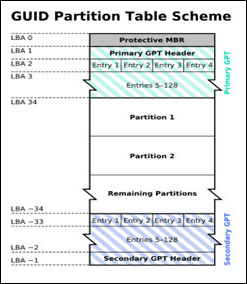
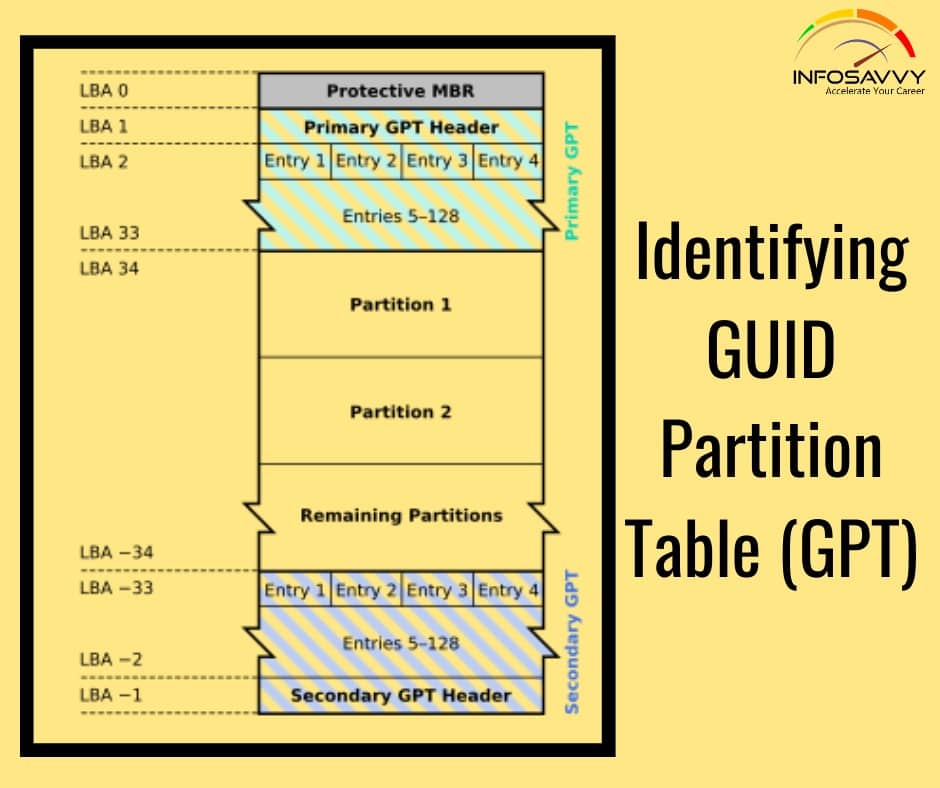
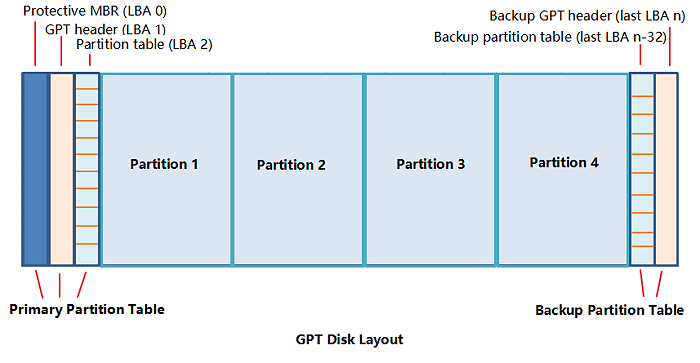

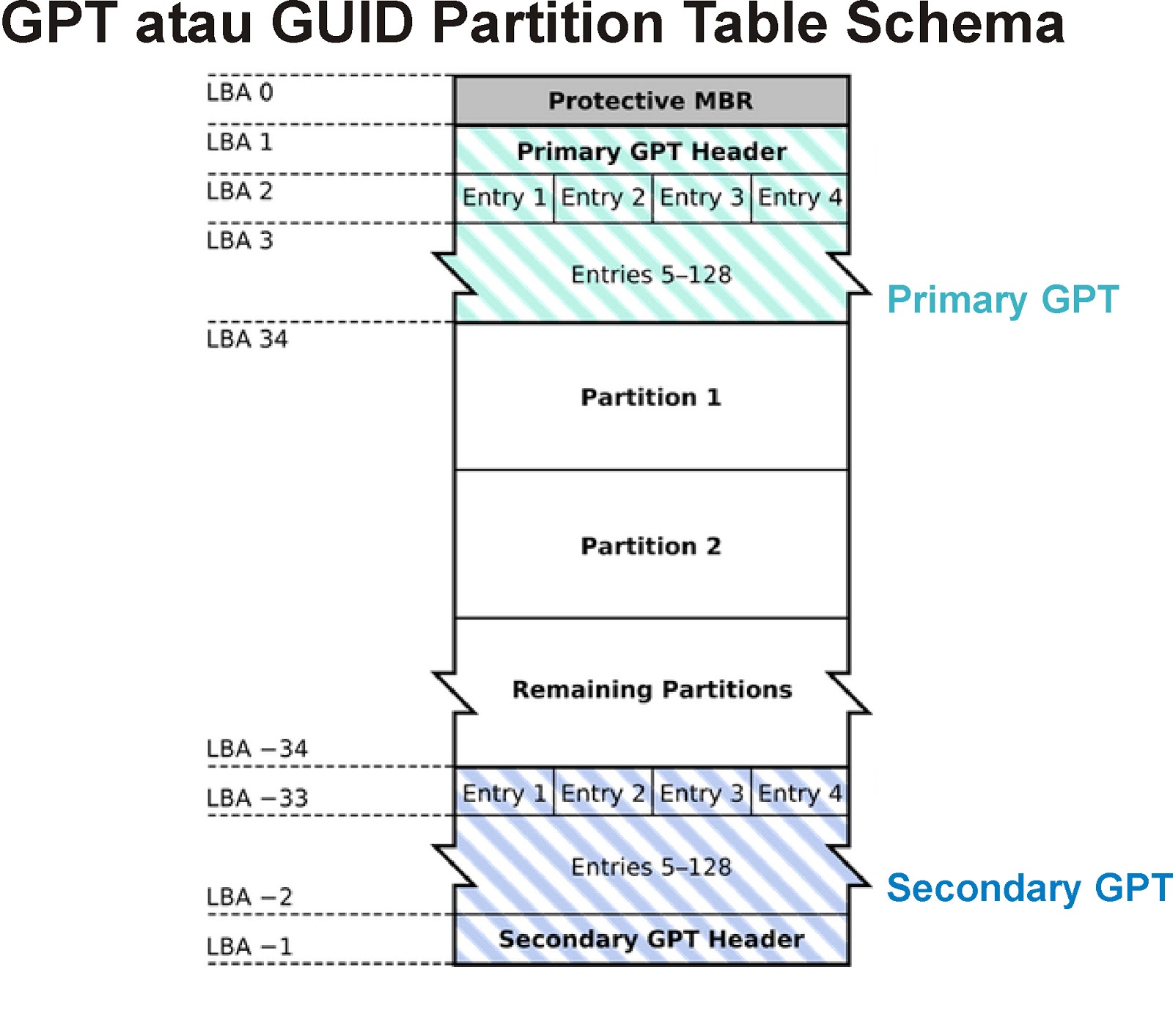
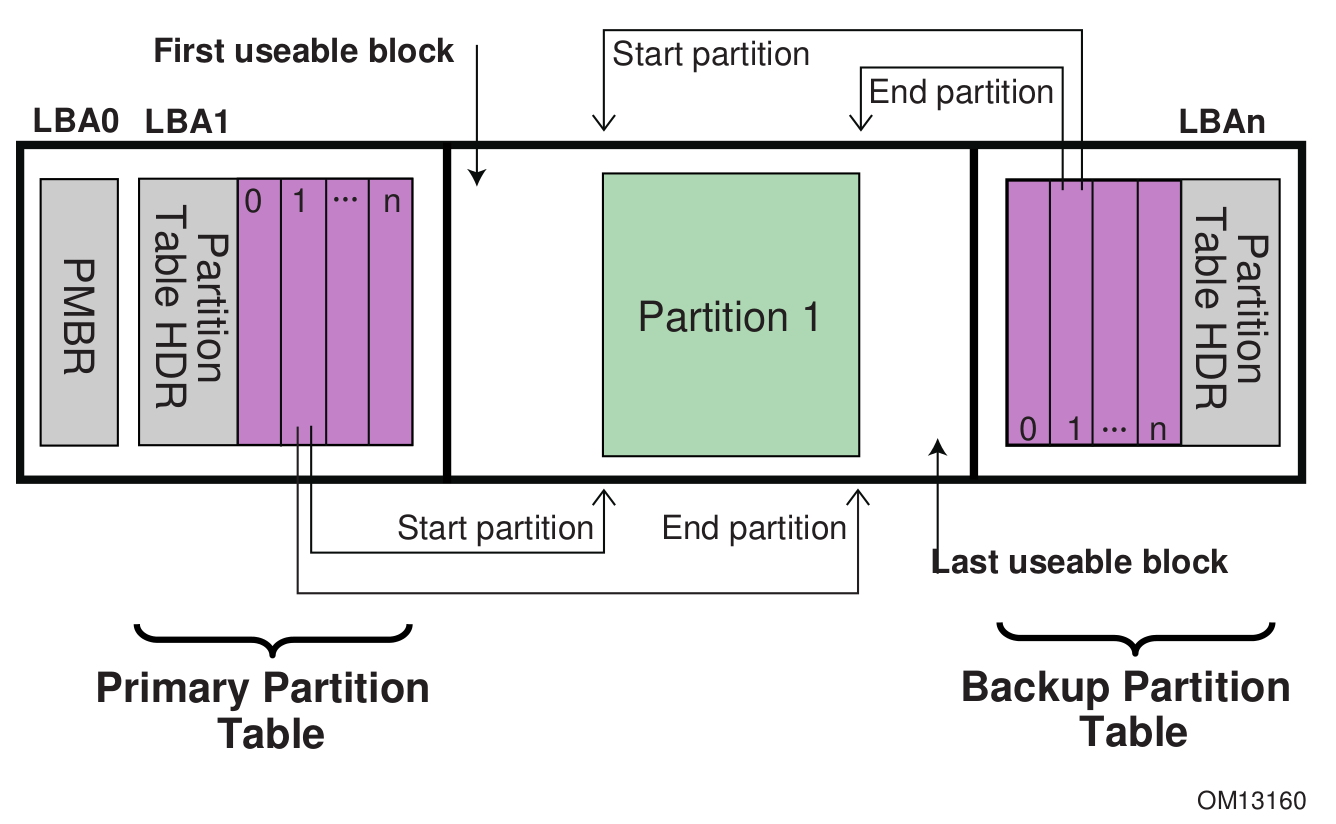
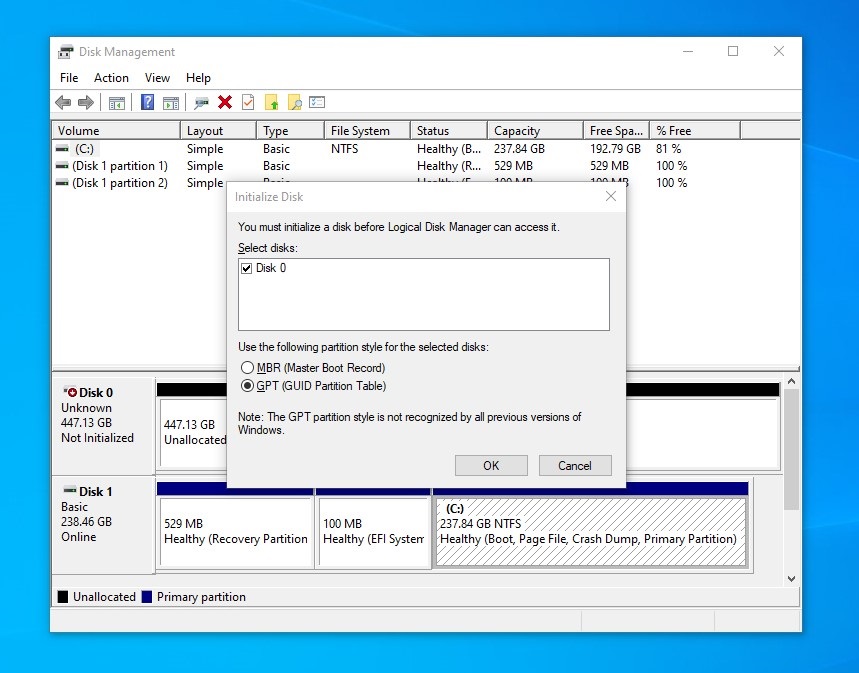

Closure
Thus, we hope this text has supplied useful insights into Understanding GUID Partition Desk (GPT): A Deep Dive into Fashionable Disk Partitioning. We thanks for taking the time to learn this text. See you in our subsequent article!